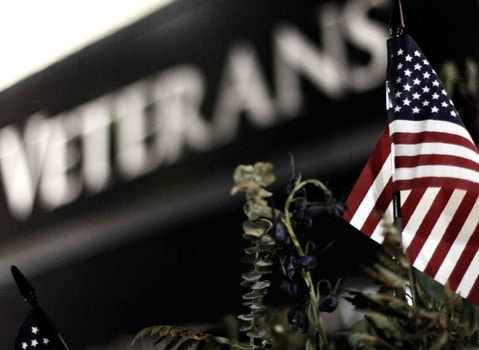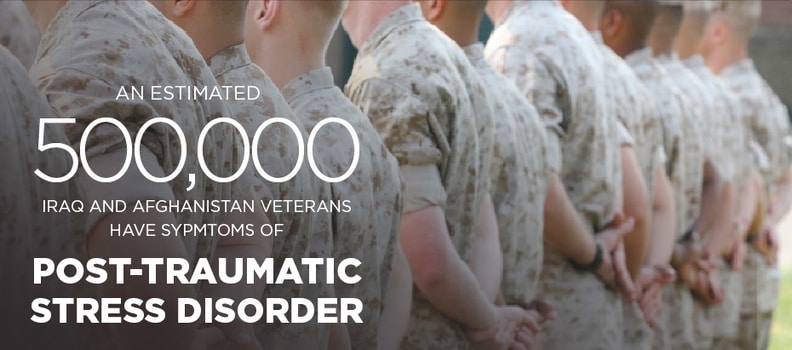
Written By: Steve Kennedy
This year, Connecticut lawmakers face a choice: to fully legalize cannabis, or to continue enforcing harmful drug laws that unfairly burden the sick, the poor, people of color, and veterans like me.
There has been robust debate in the state over the merits of legalization of adult-use cannabis. Missing from many of these conversations, however, are veterans, who have much to gain from full legalization.
22 Too Many
Veterans are more likely to suffer from PTSD, chronic pain, and traumatic brain injury (TBI) than the general population, and many have found relief from service-related symptoms through cannabis. Research shows that cannabis can be an effective therapy for individuals suffering from PTSD and chronic pain, and synthetic cannabinoids have promise as palliative treatments for TBI. In addition, individuals with access to cannabis are less likely to self-medicate with more dangerous substances like opioids and alcohol.
At a time when opioid use is increasing among veterans and one in 15 veterans report a substance use disorder, cannabis is a far safer and more effective treatment option. Since returning from Iraq myself and struggling deeply with PTSD and suicidal ideation, I have heard again and again from fellow veterans about how cannabis allowed them to recover and get themselves back from the brink.
Who are the ones’ suffering?

Despite cannabis’ recognized benefits, Connecticut veterans often face the highest barriers to accessing it. While medical cannabis is legal in Connecticut, it is still illegal at the federal level, and VA physicians cannot prescribe it to their veteran patients. Connecticut veterans suffering from service-related conditions have to find medical cannabis outside the VA, paying hundreds of dollars for the cost of a state medical certification and fees to a prescribing doctor whom they do not know. For veterans struggling with mental health conditions or chronic pain, this is an unjust additional burden, and for those living paycheck to paycheck, it can be a complete barrier to entry the program.
When veterans can’t get medical cannabis, they often pay an even higher price by seeking it on the street or, more recently, traveling to a neighboring state. Despite the decriminalization of small amounts of cannabis, obtaining enough for personal medical use over state lines can easily put veterans with service-related conditions over the limit. It is estimated that Connecticut law enforcement arrests some 100 veterans each year for cannabis-related violations.
Shouldn’t Connecticut Leadership push for change?
Connecticut currently does nothing to help veterans get this potentially life-saving treatment. Our neighboring states, including Massachusetts, Maine, and Vermont, have already legalized recreational cannabis, making it easier for veterans to access cannabis when they need it, and ensuring they do not get arrested when they use it. Veterans and low-income residents in states like Oregon and Rhode Island pay little or nothing to register for medical cannabis. In Illinois, veterans with diagnosed qualifying conditions are not required to obtain a physician’s signature for certification. There is no reason Connecticut cannot do the same.
Previous efforts in Connecticut to ease veterans’ access to the medical marijuana program have failed over cost concerns. Adult-use cannabis, however, generates the revenue that other states have used to fund veterans’ access to medical marijuana. Several legalization bills introduced in Connecticut this session could allow a portion of the revenue to subsidize access to the medical program for patients in need of treatment, including veterans.
Expungement
Critically, the legalization package would also allow for the erasure of criminal records for marijuana possession. Veterans forced to self-medicate by a misguided VA cannabis policy should not have their reintegration into our state held back by criminal records. As veterans continue to return from war overseas and the veteran suicide rate continues to rise, we must do everything we can to ensure that our veterans get the support and treatments they need to build their lives here in Connecticut.
A majority of Connecticut residents and post-9/11 veterans nationwide support legalizing and taxing cannabis. We are ready to start treating people with chronic conditions, communities of color, and veterans with fairness and decency. The question is whether Connecticut’s elected officials are ready to join us.
Steve Kennedy is the founder of the Connecticut chapter of Iraq and Afghanistan Veterans of America (IAVA-CT), a veterans’ advocacy group that represents thousands of post-9/11 veterans statewide.

Check out Dabbin Dad for all your strain information and know your medicine.


